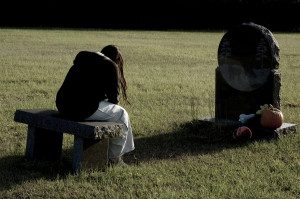I recently got a new kitten. He was one of five in the litter and was about to have a reunion with his brother after a week of them being apart. I was so excited, expecting a big reunion scene like in the movies in which they would hug, kiss and let each other know how much they missed one another. Instead I got two kittens that were clawing, scratching and biting. My kitten was obviously feeling territorial but I also wondered if he remembered his brother. The owner of the other cat said to me “Wouldn’t it be nice if humans could forget people that easily? I lost my mother over 20 years ago and I still miss her every day”.
Loss Leading to Grief
Loss of a loved one and the reaction to that loss can be very complex, and a person’s culture and relationship to the deceased also need to be taken into account. According to the Diagnostic and Statistical Manual of Mental Disorders: Fifth Edition (DSM-V), bereavement is classified by an intense yearning or longing for the decreased, intense sorrow and emotional pain, and preoccupation with the deceased or the circumstances of the death. There are no precise symptoms that separate grief from depression but some of the following features may be helpful in determining if it is time to seek professional help.
Differentiating Grief from Depression
Grief is associated with a variety of feelings and emotions but the main one is usually emptiness and/or loss. If an individual is feeling a persistent depressed mood or inability to anticipate or experience happiness and pleasure at all this may be a sign they also have a medical disorder called major depression. Grief can be associated with “pangs of grief” which are waves of sadness that are associated with thoughts or reminders of the deceased. For example pangs around the loved one’s birthday, when hearing their favorite song, etc. People who are clinically depressed after a loss have constant low mood, which is not tied to any such thoughts or reminders. In depression the individual may have negative self-thoughts, low self-esteem and feelings of worthlessness. At its most severe a depressive episode may also include thoughts of ending one’s life, whereas in grief people may have thoughts of “joining” the deceased but would not take measures to do so.
Help for Grief & Depression
Grief counseling and therapy may be helpful in getting a person through this difficult time, whether one-on-one or in a group setting. For clinical depression, therapy is also helpful, but medications may be needed. While there is no pharmacologic treatment for grief at this time, medications may be helpful for treating some of the co-occurring symptoms, such as loss of appetite or insomnia.
Article content, © Kira Stein, MD, APC. | West Coast Life Center

